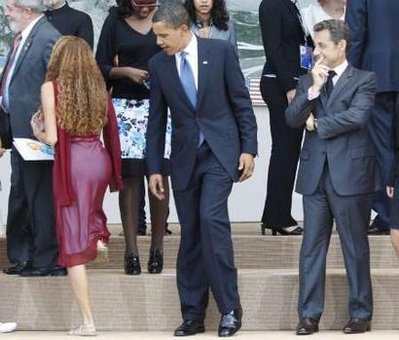Apparently, in Philadelphia, a big scandal has brewed over a local day camp that contracted with a private club to use their pool facilities. After some members complained (and allegedly were heard uttering racist remarks in terrible fear of seven-year-old children) the club refunded the camp’s money and asked them not to return, with the president of the club saying, in a statement, “There was concern that a lot of kids would change the complexion … and the atmosphere of the club.”
Lousy behavior on the part of the Valley Swim Club, there’s no question about it. Hideously poor choice of words too. And it’s hard to come up with a scenario in which the decision wasn’t racially motivated, despite the club’s disclaimers (which ought, by the way, to say “overestimated,” not “underestimated,” but that’s just the editor in me). These people really owe the kids a BIG TIME apology. And I’m saddened and sickened that this kind of racial prejudice is still alive and well in our nation. When I saw those kids crying on CNN today, I just wanted to reach out and give them a hug.
But I also wondered, Were these swim club jerks ethically obliged to host the day campers? They gave the camp’s money back, after all. Their actions left the kids in the lurch, which stinks, but I don’t know if it’s contractually illegal. So, do they have the right to decide whose money they’ll accept, and whose they won’t? (After the fact, or from the get-go?)
This story brought to my mind the question of exclusive clubs in general, and whether their membership policies are equitable, or need continuing scrutiny.
The Valley Swim Club advertised open membership, according to what I’ve read, so it seems like an open-and-shut case–you can’t refuse anyone who has the money to pay for your facilities. But what about all those centuries of “Old-Boys'” clubs where women and minorities couldn’t get in the door? I mean, when Tiger Woods was first learning to play golf, he was frequently harassed because of his race, and many private golf clubs did not even allow black people to set foot on their grounds (except perhaps as caddies), let alone participate in championships. Since a great deal of the necessary networking both in business and in politics has historically gone on behind the closed doors of private clubs and societies like these, minorities and women couldn’t get ahead.
Despite great leaps in progress in these areas, (and the lawsuits that spurred them) it seems people continue to feel a natural (?) desire to form exclusive cliques; to shut some out for the sake of others.
In fact, in her quest for Supreme Court nomination, Sonia Sotomayor has recently been forced to give up membership in a powerful elite women’s-only group known as the Belizean Grove, which she had joined a year previously and which allowed her access to other high-ranking and influential women.
Some might argue these clubs and societies exist to better one group, not to harm another (the idea of a mentoring society to help women in business strengthen relationships sounds GREAT to me) but when it prevents any other group or individual from getting ahead due to gender or race, I get nervous. I guess Sotomayor’s critics felt the same, and in order to avoid the whiff of discrimination, she bowed to pressure.
Do you think there’s a place for clubs segregated by sex, race, or social status?

